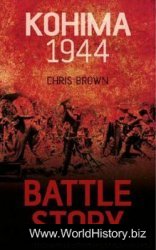These sources show clearly that the Hittites conceived of the universe they inhabited as a continuum, with no strict disjunction between the sphere of humans and that of the gods. Rather, the two groups of beings, although vastly different in power, were interdependent, and both ultimately drew their sustenance from the realm of plants and animals alongside of which they lived (Collins 2002). A third category of being was that of the defunct human being, or ancestral spirit. As elsewhere in the ancient world (Schmidt 1996), Hittite ghosts were owed remembrance and periodic gifts of food and drink from their descendants, and could make their continued presence in society manifest in a manner most unpleasant for the living should these obligations be neglected (Archi 1979).
That the gods too relied upon humans for support is clear from a complaint uttered by King Mursili II (1321-1295 bce) at a time when an epidemic raged in Hatti:
Listen to me, O gods, my lords. [Send away] the turmoil from my heart. [Let] the plague [be removed] from Hatti. Send [it] to the enemy lands... If you, the gods, my lords,
[do not send] the plague [away] from Hatti, the bakers of offering bread and the libation bearers [will die]. And if they die off, [the offering bread] and the libation will be cut off for the gods, [my lords]. Then you will come to me, O gods, [my lords], and hold this to be a sin [on my part] (saying): ‘‘Why [don’t you give] us offering bread and libations?’’ (Beckman 1997a: 159)
Here Mursili reminds the deities that it is in their self-interest to halt the plague, since without worship by humans, they themselves would literally go hungry. In return for the honor and support they supplied to the gods, men and women relied upon the divine masters to uphold their side of the bargain by assuring the fertility upon which everything depended. An excerpt from another royal prayer illustrates this expectation:
To the king, queen, princes, and to [all] of Hatti give life, health, strength, long years, and joy (in) the future! And also give to them future thriving of grain, vines, fruit, cattle, sheep, goats, pigs, mules, asses - together with wild animals - and of human beings! (Singer 2002: 54-6)
Correspondingly, an angry or offended deity could punish an individual, or even all of Hatti, by inflicting such ills as disease like the plague just mentioned, sterility as in the myths of the ‘‘Vanishing God’’ type (Beckman 1997b), or military defeat (Beal 1995).




 World History
World History









